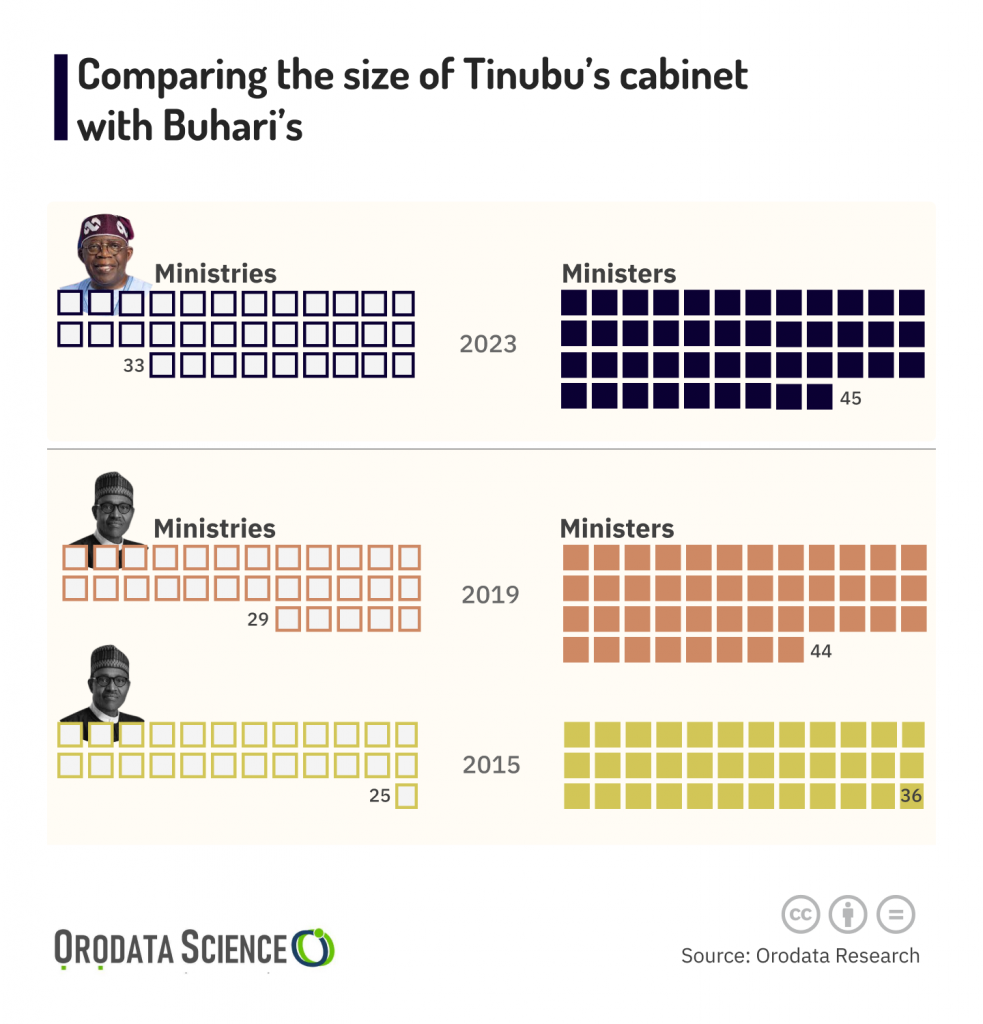On Monday, 22 August, 2023, President Bola Tinubu swore in 45 ministers approved by the senate, out of the 48 he had appointed. The senate had refused to approve the appointment of the remaining three.
Tinubu’s cabinet, with 45 ministers, is the largest since Nigeria’s transition to democracy in 1999. This topped his processor, Muhammadu Buhari’s 42 ministers in 2019. In his first term in 2015, Buhari appointed 36 ministers after making the country wait for over six months.
Former President Goodluck Jonathan in 2011 appointed 33 ministers to his cabinet, Late Umaru Musa Yar’Adua named a 39-member cabinet in 2007,
In 1999, former President Olusegun Obasanjo initially named 42 ministers but reviewed his cabinet to reduce the number to 40 before he left office in 2007.
Apart from having more ministers than his predecessors, Tinubu also increased the number of ministries by creating new ones and renaming some. His administration currently has 33 ministries, against 25 and 29 that Buhari had in 2015 and 2019 respectively.
The new ministries include: the ministry of Marine and Blue Economy, headed by former governor of Osun State, Gboyega Oyetola; Torism, headed by Lola John-Ade; Steel Development, headed by Shuaibu Audu; the ministry of Gas Resources, headed by Minister of State, Ekperikpe Ekpo; the ministry of Arts, Culture and Creative Economy headed by Hannatu Musawa and the ministry of Youth which is yet to be filled.
The modified ministries include: Heallth and Social Welfare, which used to be just Ministry of Health; Humanitarian Affairs and Poverty Alleviation, which was the Ministry of Humanitarian affairs and Disaster Management under Buhari.
The Ministry of Finance has also been modified as Ministry of Finance and Coordinating Economy; while the Ministry of Aviation is now Aviation and Aerospace Development.

